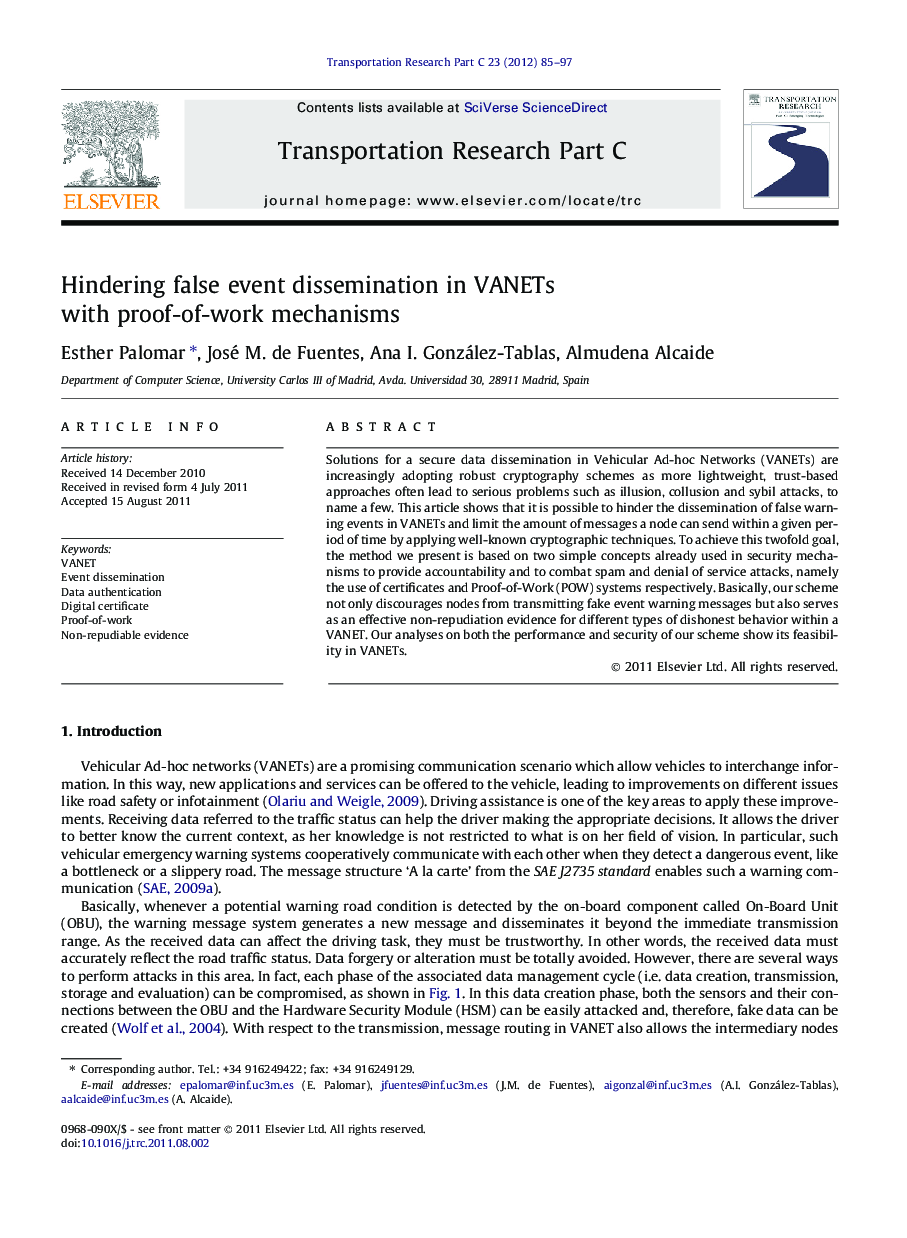| Article ID | Journal | Published Year | Pages | File Type |
|---|---|---|---|---|
| 526595 | Transportation Research Part C: Emerging Technologies | 2012 | 13 Pages |
Solutions for a secure data dissemination in Vehicular Ad-hoc Networks (VANETs) are increasingly adopting robust cryptography schemes as more lightweight, trust-based approaches often lead to serious problems such as illusion, collusion and sybil attacks, to name a few. This article shows that it is possible to hinder the dissemination of false warning events in VANETs and limit the amount of messages a node can send within a given period of time by applying well-known cryptographic techniques. To achieve this twofold goal, the method we present is based on two simple concepts already used in security mechanisms to provide accountability and to combat spam and denial of service attacks, namely the use of certificates and Proof-of-Work (POW) systems respectively. Basically, our scheme not only discourages nodes from transmitting fake event warning messages but also serves as an effective non-repudiation evidence for different types of dishonest behavior within a VANET. Our analyses on both the performance and security of our scheme show its feasibility in VANETs.
► Our scheme hinders the dissemination of false event warning messages in VANETs. ► The application of proof-of-work systems discourages vehicles from flooding a VANET. ► A new structure called Event Warning Certificate (EWC) is described. ► EWC represents an effective non–repudiation evidence and provides accountability. ► Performance and security analyses show our scheme’s feasibility in VANETs.
